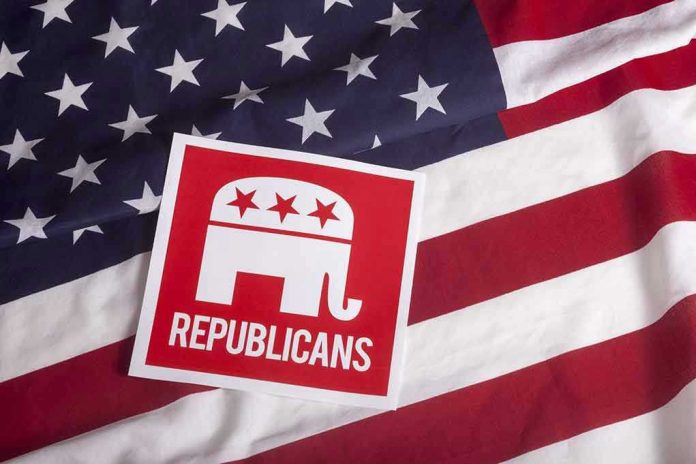
When a former Arkansas governor and Trump’s trusted ambassador to Israel secretly meets a notorious American spy in Jerusalem, even the most loyal MAGA supporters erupt in disbelief—what lines get crossed when patriotism collides with clandestine diplomacy?
Story Snapshot
- Mike Huckabee admitted to a covert meeting in Jerusalem with Jonathan Pollard, a convicted spy for Israel.
- MAGA supporters are infuriated, seeing the encounter as a betrayal of American interests.
- The bombshell event exposes deep rifts within the conservative movement about loyalty, secrecy, and foreign alliances.
- Public reaction signals new challenges for Trump’s camp as loyalty and legal boundaries clash in foreign affairs.
Trump’s Ambassador Sparks Outrage with Jerusalem Spy Meeting
Mike Huckabee, the former Arkansas governor and Trump’s ambassador to Israel, recently confirmed hosting a discreet meeting in Jerusalem with Jonathan Pollard, whose conviction for selling classified U.S. intelligence to Israel made him a lightning rod for debate. Huckabee’s revelation immediately set off a firestorm among MAGA supporters, who see Pollard’s actions as a textbook case of treason against American interests. For a movement built on “America First,” the optics of a top Trump envoy fraternizing with a convicted spy have produced a rare and visceral sense of betrayal.
Mike Huckabee went to Israel 14 years ago to lobby for the freedom of Israeli spy Jonathan Pollard, who forked over the NSA's signals intelligence manual to Tel Aviv
Trump and the Senate GOP then chose him as their point person to represent the America First brand in Israel pic.twitter.com/YylxfyKLFT
— Max Blumenthal (@MaxBlumenthal) November 20, 2025
Conservative circles wasted no time voicing their outrage across social media platforms. The meeting’s secrecy fed speculation about whether Huckabee was acting on personal initiative or following orders from higher up in the Trump administration. Pollard, released from prison in 2015 after serving three decades, remains a divisive figure. To many, he is a traitor; to others, a patriot who aided an ally. Huckabee’s willingness to break bread with Pollard now places him—and by extension, Trump’s foreign policy apparatus—in the crosshairs of an angry and skeptical base.
Spy Games and the Erosion of Trust Within MAGA
For years, MAGA’s core message centered on restoring trust in American institutions and putting U.S. citizens above global interests. The Pollard meeting cuts directly against this grain, exposing a fracture over just how far loyalty to the movement should extend when foreign relationships are involved. Some argue that Huckabee’s gesture signals dangerous leniency toward those who compromise national security, while others suspect a calculated move to strengthen ties with Israel ahead of election season. The fact remains: MAGA supporters expect unwavering allegiance to American law and values, not backroom diplomacy with convicted spies.
The episode has ignited debates about national loyalty and the limits of political forgiveness. Is it ever appropriate for a U.S. ambassador to meet with individuals convicted of betraying American secrets, even if the ally in question is Israel? For many, the answer is a resounding “no.” The optics alone have created a public relations nightmare, forcing Trump loyalists into damage control mode and prompting calls for a reassessment of the ambassador’s role in shaping foreign policy under the “America First” banner.
Conservative Values Versus Realpolitik: Where Does MAGA Draw the Line?
Conservative commentators are divided on whether Huckabee’s meeting amounts to a breach of principle or a savvy act of realpolitik. Some see it as a reckless disregard for the sacrifices of U.S. intelligence personnel, whose trust in the system underpins national security. Others defend Huckabee, pointing to the strategic importance of Israel as a U.S. ally and the need for pragmatic engagement, however controversial. The tension between ideological purity and practical statecraft has never been more pronounced, leaving the MAGA movement at a crossroads.
This incident compels the movement to confront uncomfortable questions about the cost of alliances and the meaning of patriotism. Can the America First ethos survive when its champions make exceptions for foreign friends? Will Huckabee’s actions set a precedent for future diplomatic overtures, or will the backlash lead to tighter boundaries and clearer standards? The answers remain elusive, but the episode has forced a reckoning on issues long simmering beneath the surface of conservative politics.

